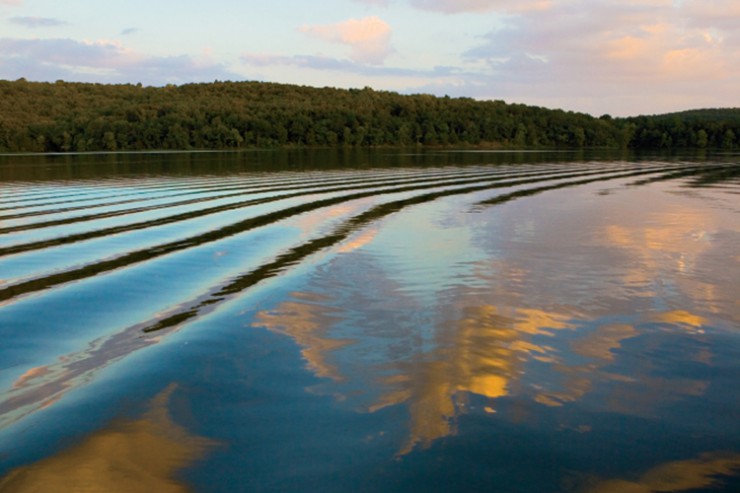Home > Oklahoma > Oklahoma Crops & Livestock > Farming for the Future in Oklahoma
Farming for the Future in Oklahoma

There are no stewards of the land like those who depend on it. Oklahoma farmers take pride in the earth they cultivate and utilize conservation techniques to protect it.
“There are a lot of farmers who do care about conservation and the ecosystem,” says Allen Brown, Oklahoma cattle and poultry producer. “For farmers, the environment can make or break you, so anything in our control that we can do to preserve or improve it is to our advantage.”
Brown has been farming full time for 27 years and feels a strong sense of duty to farm responsibly. He implements numerous conservation techniques throughout his cow/calf and poultry operation.
“I wanted to do anything I could to be sure I was helping and not hurting the land and streams,” Brown says. “Not just my land, but those downstream also.”
According to the Natural Resources Conservation Service, there are 78,500 miles of rivers and streams throughout Oklahoma, which equals approximately three times the circumference of the earth.
Education about best management practices for landowners and livestock producers is imperative to improving water quality. Brown depends on other producers, Oklahoma State University Extension and the NRCS for the latest in soil, waste and nutrient management. He finds that these practices help him get more out of the land while doing the least amount of damage.
“I have put in fences to implement rotational grazing and planted legumes to help soil nutrients,” Brown says. “I have had ponds built and wells drilled for cattle waterers so the cattle wouldn’t have to access the creeks for water.”
Brown has also planted 75 acres as a riparian buffer zone. Vegetation planted as riparian buffer zones prevents sediment, nutrients and pesticides from running off into nearby water sources, while preventing the erosion of stream banks and providing habitats for native wildlife.
Oklahoma producers farm with the future in mind. Caring for the environment they live in is the legacy they leave their children. “I think I only have to look at my grandkids to know I have a big obligation to protect and improve the water and land that I farm,” Brown says. “I hope I leave it better than I got it.”



